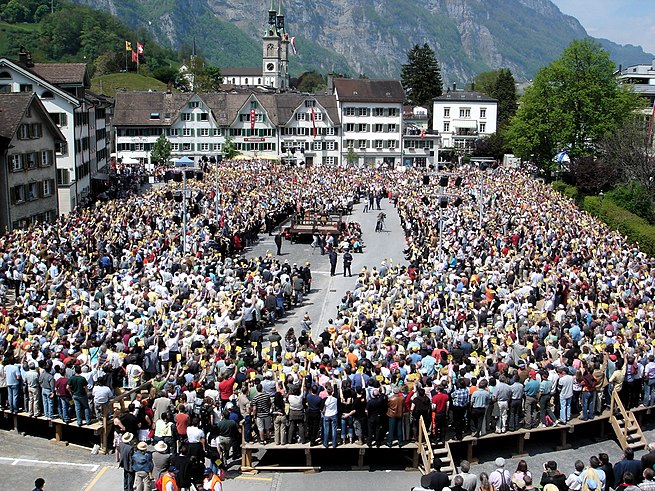Main Difference
The main difference between Direct Democracy and Representative Democracy is that the Direct Democracy is a Democracy in which all people make decisions, without intermediate representatives and Representative Democracy is a democracy where citizens elect a small set of people to represent them in decision making
-
Direct Democracy
Direct democracy or pure democracy is a form of democracy in which people decide on policy initiatives directly. This differs from the majority of currently established democracies, which are representative democracies. The theory and practice of direct democracy and participation as its common characteristic was the core of work of many theorists, philosophers, politicians and social critics, among whom the most important are Jean Jacques Rousseau, John Stuart Mill, and G.D.H. Cole.
-
Representative Democracy
Representative democracy (also indirect democracy, representative government or psephocracy) is a type of democracy founded on the principle of elected officials representing a group of people, as opposed to direct democracy. Nearly all modern Western-style democracies are types of representative democracies; for example, the United Kingdom is a unitary parliamentary constitutional monarchy, France is a unitary semi-presidential republic, and the United States is a federal presidential republic.It is an element of both the parliamentary and the presidential systems of government and is typically used in a lower chamber such as the House of Commons of the United Kingdom, Lok Sabha of India, and may be curtailed by constitutional constraints such as an upper chamber. It has been described by some political theorists including Robert A. Dahl, Gregory Houston and Ian Liebenberg as polyarchy. In it the power is in the hands of the representatives who are elected by the people. Political parties are often central to this form of democracy because electoral systems require voters to vote for political parties as opposed to individual representatives.

